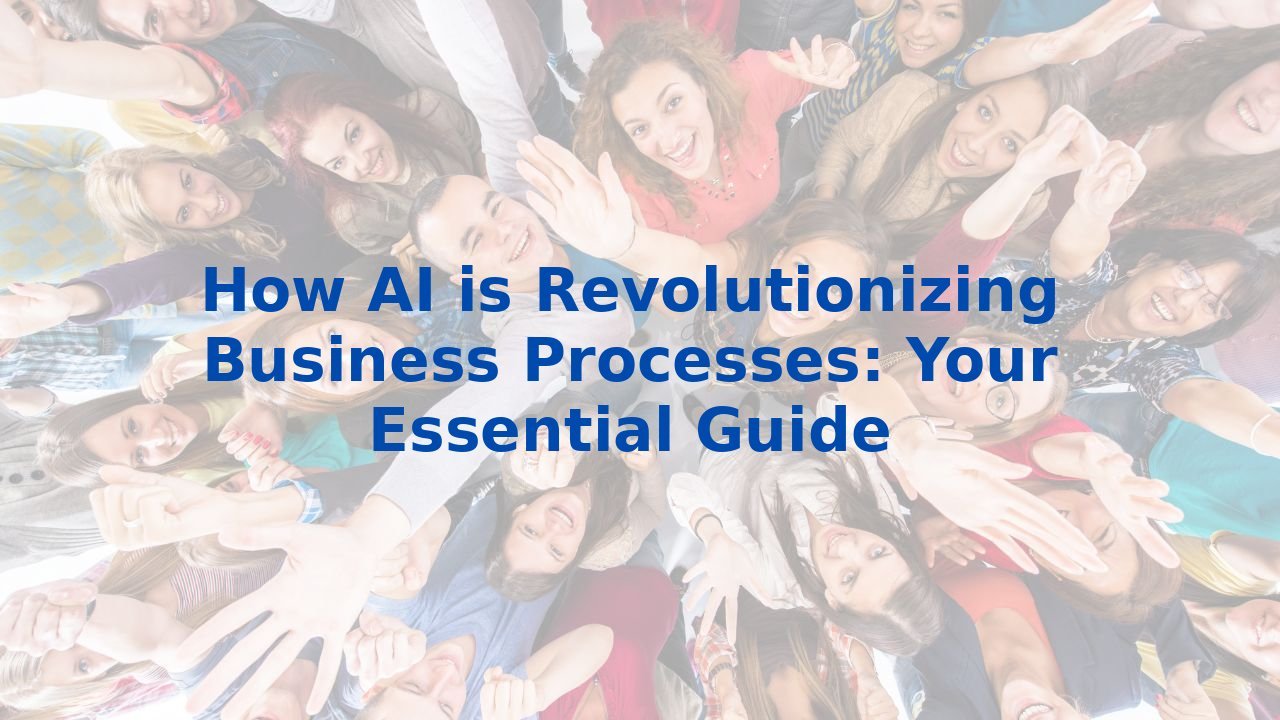How AI is Revolutionizing Business Processes: Your Essential Guide
The Future of Business Efficiency: How AI Enhances General Business Processes
Introduction
In the rapidly changing landscape of today's business world, efficiency is no longer a luxury; it’s a necessity. Enter artificial intelligence (AI)—a transformative force revolutionizing how businesses operate. From automating mundane tasks to enhancing complex decision-making, AI offers an array of solutions that streamline processes and improve operational efficiency.
1. Automating Routine Tasks
Imagine a work environment where tedious, repetitive tasks are handled without the need for your intervention. AI makes this possible by automating high-volume routine tasks like document processing. When AI analyzes and extracts data from documents, it minimizes human error and frees up valuable time. This time saved can be redirected toward more strategic and creative initiatives, leading to a more engaged and productive workforce.
2. Improving Decision Making
Decision-making is often fraught with uncertainty, but AI can provide clarity through predictive analytics. By analyzing historical data, AI systems can simulate various scenarios and their potential impact on profitability. This empowers business analysts to make data-driven decisions—like determining the optimal pricing strategy—without the fear of alienating customers or sacrificing profits. The analytical prowess of AI not only enhances accuracy but also fosters confidence in decision-making processes.
3. Enhancing Customer Service
In a world where customer expectations are at an all-time high, AI steps in as a game-changer in customer support. Through automated chatbots, businesses can handle basic inquiries and leverage customer feedback to pinpoint areas for improvement. This results in faster and more accurate responses, thus amplifying the customer experience. By allowing AI to assist in customer interactions, human agents can focus on more complex issues, further elevating the level of service provided.
4. Optimizing Supply Chain Management
Supply chain management can be a daunting task, especially with the myriad of factors influencing purchasing decisions. AI simplifies this by analyzing purchase data in real-time, identifying anomalies and potential disruptions. For instance, if stock levels of a popular item dwindle, AI systems can alert purchasers to act swiftly, mitigating risks of stockouts. Automating ordering processes with robotic process automation (RPA) also serves to save significant time and streamline operations.
5. Supporting Complex Decision-Making Processes
The intricacies of modern business often require careful navigation through complex decision-making processes. AI excels in this arena by processing both structured and unstructured data from various sources. This holistic approach empowers decision-makers with the necessary insights to consider multiple scenarios and assess potential risks. When leaders have access to comprehensive analysis, they can make informed choices that position their firms for success.
6. Process Mining and Optimization
The pursuit of efficiency often involves identifying bottlenecks and performance issues. Here, AI-driven process mining comes into play. By examining system logs, AI can reveal deviations from established processes and highlight unusual activities. This deep-dive analysis enables companies to not only identify shortcomings but also act preemptively to address them, ensuring smooth operational flows.
The Benefits of Training Employees for AI
Integrating AI into business processes is just the beginning; realizing its full potential hinges on employee training. When teams are educated on how to effectively use AI tools and interpret the data they generate, they become empowered to leverage AI-driven insights in their workflows. This ensures that the entire organization benefits from streamlined operations—enhancing productivity, improving customer service, and fostering innovation. By investing in training, companies can develop a culture of agility and responsiveness, key attributes in today’s fast-paced environment. To learn more about comprehensive AI training programs suitable for your entire organization, consider exploring options designed to equip your workforce with AI skills.
Conclusion
AI is not merely a technological advancement; it’s a revolution in how businesses operate. From automating routine tasks to optimizing decision-making and streamlining processes, the benefits of AI are undeniable. By embracing these innovations and committing to employee training, organizations can position themselves for long-term success. As the business ecosystem evolves, those who harness the power of AI while developing their talent will not just survive—they will thrive.



